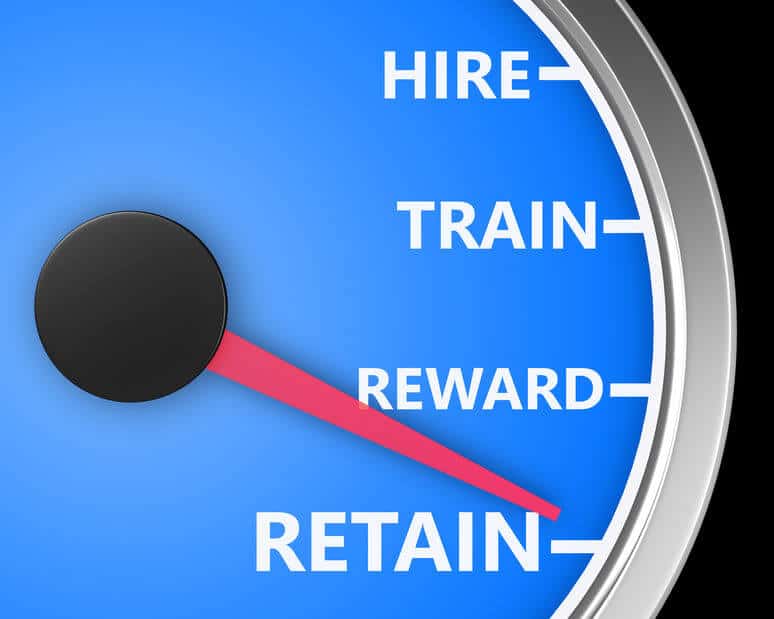
Do you remember the old slogan by Ford Motor Company?
Quality is Job #1.
While that’s a catchy phrase for sure, I beg to disagree.
While manufacturing is greatly automated, you still have the human element at all levels of the organization, from the leadership at the top to the line workers and the machine mechanics.
People still play a huge role in casting the vision, and at the end of the day, they’re the ones actually responsible for the work getting done.
So, I would change the phrase to Hiring is Job #1.
In all forms of the service industry, including construction, hiring will make you or break you.
Five Requirements to Consider When Hiring:
1. Never settle.
Take as long as is required to find the right hire. Settling is often akin to kicking the can down the road. You relieve the short-term stress, but create a bigger problem down the road when the hire does not work out.
2. It is all about your values and culture.
People tend to trust and build meaningful relationships with people who share their values. It is no different with a company.
Your value system is your culture. Ask questions that will reveal their values. Be bold, and ask every applicant to share their value system. If there is no alignment with your company values, you need to think twice before you hire.
3. Get another set of eyes on the applicants.
Go to one of your trusted teammates and get a second or even a third opinion. People are at their best in the church pews and in an interview. Put them through the ringer
4. Do more than one interview.
If you have enough applicants, do a short list and do a best and final interview. Do the final interviews outside of the office. Heck, consider inviting their spouses.
Find out who they are in a different setting. And the more you know about them personally, the better equipped you are to make an informed decision
5. Never settle.
Heck, did we say never settle? It’s worth repeating.
Good Hiring is a Learning Process
Unfortunately, not all of us have an HR department and firing is just part of the job. No one likes firing anyone, as it’s just not usually a pleasant task and it often impacts many family members.
If you do enjoy it, maybe you should take another look in the mirror and ask what the hell is wrong with me.
Even if you follow the five rules above, you will undoubtedly make a hiring mistake and most likely will make many of them over time. You simply cannot get to the soul of a person in a matter of hours.
Some Advice to Consider:
A 90-day probation period
If this is not in your policy, stop and add it now. The probation period allows you a period of time to make sure the hire is a good fit and makes it easier to terminate the relationship.
Most employers ignore it. Don’t ignore it, use it. Employees will never focus more, go the extra mile, work longer hours, or play the team member better than they will during the probationary period.
Do multiple reviews during their probation. As a leader or manager, do a 30, 60, and 90-day review with every new employee, even if informal. If their attitude, work ethic, and team play is not where it needs to be during this period, cut the cord; rest assured, it will only get worse from there.
Setting Clear Expectations
Do not expect perfect people, but you have the right and should expect, to see perfect intentions. We all make mistakes and should be judged more on our intentions than anything else, at least in the early stages. When it is clear that an employee has no intention or worry about getting it right, cut the cord…you know how this goes, it will only get worse
Be rigorous but never ruthless. Keeping under-performers around can cause dissension among the good performers. They wonder why they get paid the same amount of money for more or better work, and even worse, why the under-performers are still around.
All that being said, if you are seen as ruthless in any way in the termination of the under-performers, yep you guessed it, the under-performer will be the victim and you will be the bad guy and morale will suffer.
I know from first-hand experience. I messed up several times and took actions when I should not have. It may cost you a bit to hold off on a firing but the cost of poor morale will be even more severe.
The Bottom Line…
General rules to follow here…never terminate around the holidays, before a vacation, near the birth of a child, or anytime near a disruptive event for an employee. Do what you have to do as soon as you know it’s time (rigorous) but always keep in mind, that they are people with families and obligations (not ruthless).
RELATED ARTICLE: Accounting Tips for Small Construction Businesses
Back to blog
